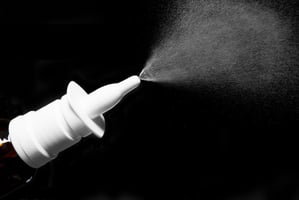Patients presenting to an emergency room with complaints of suicidal thoughts may experience relief...
Ketamine May Reduce Active Suicidal Thoughts in Patients With Treatment-Resistant Depression
 |
Previous work has shown that ketamine can provide rapid relief of depressive symptoms and lower suicidal ideation scores in patients with both unipolar and bipolar depression. This study is the first to exclusively enroll patients with active suicidal ideation (a score of 3 or higher on the Columbia Suicide Severity Rating Scale).
Fourteen patients with major depressive disorder recruited for the presence of current, stable (three months or more) suicidal thoughts received open-label ketamine infusions over three weeks (0.5 mg/kg over 45 minutes for the first three infusions; 0.75 mg/kg over 45 minutes for the last three). All the patients were taking antidepressants at a dose that was stable for at least 4 weeks prior to enrollment. Explicit suicidal ideation scores (using scales such as the C-SSRS) and implicit scores (using the Implicit Association Test which measures overall attitudes and beliefs) were assessed four hours after each infusion.
As Dawn Ionescu, M.D., and colleagues reported, there was a consistent decrease in suicidal scores during the three week acute phase, with seven of the 14 patients achieving remission of their ideation (a C-SSRS score of 0) by the final infusion; during a naturalistic follow-up three months later, two of these seven patients were still free of suicidal thoughts. In addition, IAT scores went up, suggesting a more positive outlook on life.
“Given the length (three months or more) of participants’ ongoing suicidal ideation and the lack of currently available antisuicidal agents, this steady decrease in suicidal ideation within three weeks is noteworthy,” the authors wrote.
Because there were no control groups, the authors could not be sure if multiple infusions were providing any more benefit than a single infusion, nor could they rule out that ketamine was only augmenting antidepressant action rather than acting on its own. They concluded, “Larger controlled studies (including more serious/acute patients in the emergency room) are necessary to study ketamine’s antisuicidal effects and the relationship between antisuicidal and antidepressant effects.
For related information, see the American Journal of Psychiatry article “Ketamine and Other NMDA Antagonists: Early Clinical Trials and Possible Mechanisms in Depression” and the Psychiatric News article “APA Task Force to Address ‘What’s Next?’ for Ketamine.”
(Image: iStock/slobo)





